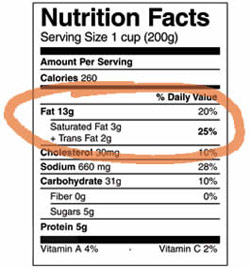
Researchers evaluated data from 1,018 men and women who were asked to complete a dietary survey and memory test involving word recall. On average, men aged 45 and younger recalled 86 words; however, for each additional gram of trans fats consumed daily, performance dropped by 0.76 words. This translates to an expected 12 fewer words recalled by young men with dTFA intake levels matching the highest observed in the study, compared to otherwise similar men consuming no trans fats.
“Trans fats were most strongly linked to worse memory in men during their high productivity years,” said Beatrice A. Golomb, MD, PhD, lead author and professor of medicine at UC San Diego School of Medicine. “Trans fat consumption has previously shown adverse associations to behavior and mood — other pillars of brain function. However, to our knowledge a relation to memory or cognition had not been shown.”
After adjusting for age, exercise, education, ethnicity and mood, the link between higher dTFA and poorer memory was maintained in men 45 and younger.
The study focused predominantly on men because of a small number of women in this age group. However, including women in the analysis did not change the finding, said Golomb. An association of dTFA to word memory was not observed in older populations. Golomb said this is likely due to dietary effects showing more clearly in younger adults. Insults and injuries to the brain accrue with age and add variability to memory scores that can swamp ability to detect diet effects.
Trans fatty acids have been linked to negative effects on lipid profiles, metabolic function, insulin resistance, inflammation and cardiac and general health. In 2013, the United States Food and Drug Administration issued a preliminary determination that trans fats were no longer generally recognized as safe. According to the Centers for Disease Control, reducing dTFA consumption could prevent 10,000 to 20,000 heart attacks and 3,000 to 7,000 coronary heart disease deaths per year in the U.S.
“As I tell patients, while trans fats increase the shelf life of foods, they reduce the shelf life of people,” said Golomb. The study done by University of California, San Diego Health Sciences.